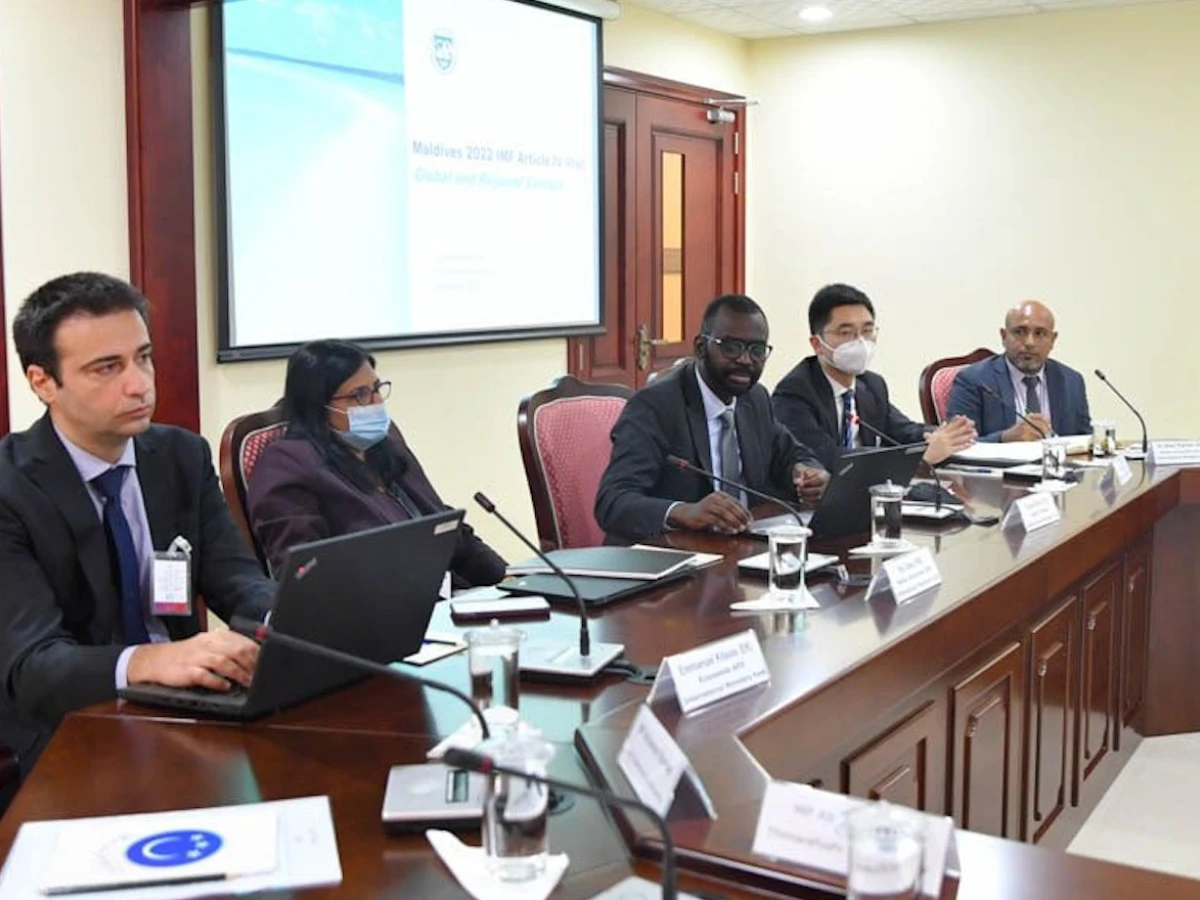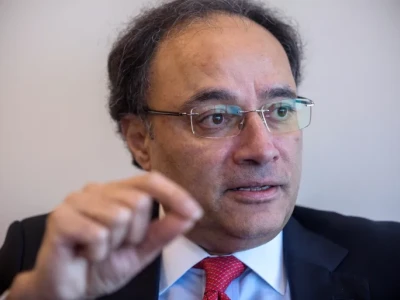
IMF says Maldives economy stable, warns of difficult year ahead
The IMF advises that the Maldives can take measures to reduce expenditure and increase income to combat state deficits.
By
Ahmed Naif
An International Monetary Fund (IMF) delegation visiting the Maldives to assess the country's economy has said that the Maldivian economy is currently stable, but has warned that 2023 will be a difficult year for the Maldives as well.
During a joint meeting of the parliament's economic and public finance committees on Thursday, the IMF delegation's head Tidiane Kinda said:
-
GDP is expected to grow at an estimated 9-10% this year.
-
The turn of Maldivian tourism to non-Russian markets has cushioned off the effect of the Russia-Ukraine war or tourist arrivals especially from Europe; Indian market has also shown significant growth.
-
Inflation has been controlled to an extent, mainly due to governmental subsidies.
"The Maldives is in a stable situation. However, the global economy looks gloomy due to the Ukraine-Russia conflict impact on European economies and the parallel slowdown in China's growth. The coming 2023 will be a tough year for the world. The challenges ahead for developing countries like Maldives will also be huge," said Kinda.
Fiscal challenges ahead for Maldives
Noting that many of the IMF's predictions on the global economy are coming to pass, Kinda said that the biggest challenge for the Maldives in the year ahead will be its limited borrowing capacity from international markets. He said the hike in interest rates has increased the cost of borrowing money from the global market.
He cited as an example the major change in the interest rate of Sukuk bonds sold by the Maldives. He said that the interest rate at 10% has now been raised to 20%, and loans are available to the Maldives at an increased interest rate.
"The cost of accessing finance will increase the burden on the state budget. The total deficit and the budget deficit will increase further," Kinda said.
The IMF advises that the Maldives take measures to reduce expenditure and increase income. He said that the state should reduce expenditure on state-owned companies, look into the areas where expenditure can further be reduced and implement reforms as soon as possible.
"The Maldives must take these measures expeditiously, collaborating together," Kinda said.
He reiterated the IMF's consistent concern over the country's growing deficits every year. He said that this is the time for the Maldives to think seriously about it.
"The results of increasing debt and budget deficit will be very tough for the Maldives," Kinda said.
Tourism may decline; inflation may rise
Kinda noted that 50% of tourist arrivals to the Maldives are from European countries. However, he said that Maldivian tourism will be further affected from the major economic challenges continuing in Europe.
Kinda believes the effects will become prevalent in the days ahead, and counsels to prepare for the challenges in the tourism sector by increasing the country's focus on non-European source markets.
He added that inflation cannot be maintained long-term by providing subsidies from the Maldivian budget, and the subsidy methods will have to be changed to fight price rises.
"The prices of commodities are expected to increase in the Maldives as well," Kinda said.




